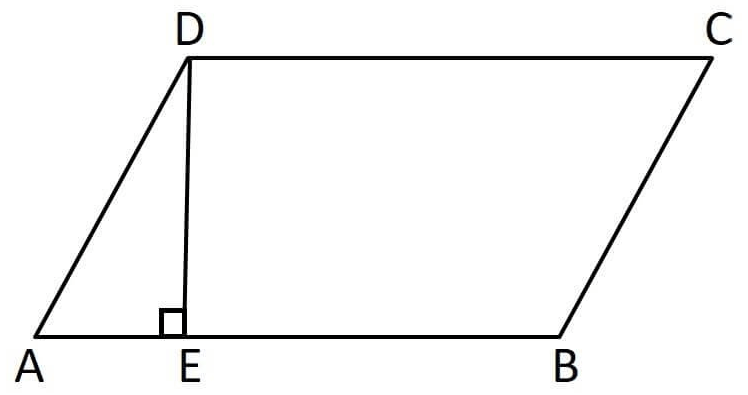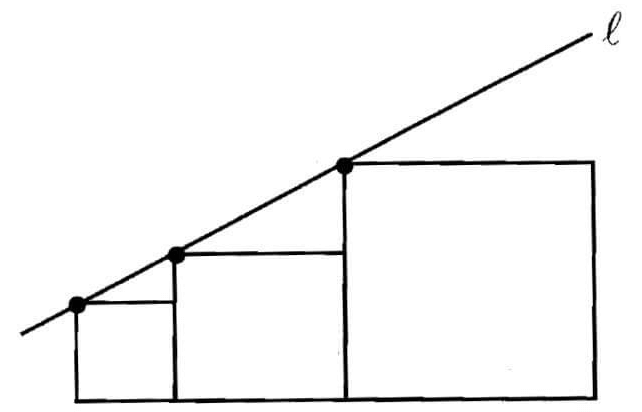PROPERTIES OF COMPLEX NUMBERS
1. The product of a complex number and its conjugate is a real number.
Proof :
(a + ib) and (a - ib) are two complex numbers conjugate to each other, where a and b are real numbers.
(a + ib)(a - ib) = a2 - (ib)2
= a2 - i2b2
= a2 - (-1)b2
= a2 + b2 (real number)
2. The result of finding conjugate for conjugate of any complex number is the given complex number.
Proof :
Consider the complex number (a + ib).
Conjugate of (a + ib) = a - ib
Conjugate of (a - ib) = a + ib
3. If the conjugate of complex number is the same complex number, the imaginary part will be zero.
Proof :
Let z = a + ib, where 'a' and 'b' are real numbers.
If z is real, then b = 0 and also
conjugate of z = z
Conversely, if z = conjugate of z, that is a + ib = a - ib, then
b = - b ⇒ 2b = 0 ⇒ b = 0
b = 0 ⇒ z is real.
Therefore,
z is real ⇔ the imaginary part is 0
4. Sum of a complex number and its conjugate is equal to 2 times the real part of the complex number.
Proof :
Let z = a + ib, conjugate of z = a - ib where a and b are real numbers.
(a + ib) + (a - ib) = a + ib + a - ib
= 2a
= 2 Re(z)
5. Difference of a complex number and its conjugate is equal to 2i times the imaginary part of the complex number.
Proof :
Let z = a + ib, conjugate of z = a - ib where a and b are real numbers.
(a + ib) - (a - ib) = a + ib - a + ib
= 2ib
= 2i Im(z)
6. The conjugate of the sum of two complex numbers z1 and z2 is the sum of their conjugates.
Proof :
Let z1 = a + ib and z2 = c + id, where a, b, c and d are real numbers.
conjugate of z1 + conjugate of z2 = (a - ib) + (c - id)
= a + c - ib - id
= (a + c) - i(b + d)
conjugate of (z1 + z2) = conjugate of [(a + ib) + (c + id)]
= conjugate of [a + c + ib + id]
= conjugate of [(a + c) + i(b + d)]
= (a + c) - i(b + d)
= conjugate of z1 + conjugate of z2
7. The difference of two complex numbers z1 and z2 is the difference of their conjugates.
Proof :
Let z1 = a + ib and z2 = c + id, where a, b, c and d are real numbers.
conjugate of z1 - conjugate of z2 = (a - ib) - (c - id)
= a - ib - c + id
= a - c - ib + id
= (a - c) - i(b - d)
conjugate of (z1 - z2) = conjugate of [(a + ib) - (c + id)]
= conjugate of [a + ib - c - id]
= conjugate of [a - c + ib - id]
= conjugate of [(a - c) + i(b - d)]
= (a - c) - i(b - d)
= conjugate of z1 - conjugate of z2
8. The conjugate of the product of two complex numbers z1 and z2 is the product of their conjugates.
Proof :
Let z1 = a + ib and z2 = c + id, where a, b c and d are real numbers.
conjugate of (z1) x conjugate of (z2) = (a - ib)(c - id)
= ac - iad - ibc + i2bd
= ac - iad - ibc + (-1)bd
= ac - bd - iad - ibc
= (ac - bd) - i(ad + bc)
conjugate (z1z2) = conjugate of [(a + ib)(c + id)]
= conjugate of [ac + iad + ibc + i2bd]
= conjugate of [ac + iad + ibc + (-1)bd]
= conjugate of [ac - bd + iad + ibc]
= conjugate of [(ac - bd) + i(ad + bc)]
= (ac - bd) - i(ad + bc)
= conjugate of (z1) x conjugate of (z2)
9. The conjugate of the quotient of two complex numbers z1, and z2 (z2 ≠ 0) is the quotient of their conjugates.
Conjugate of (z2/z2) = conjugate (z2) / conjugate of (z2)
10. Let z be a complex number. Then, conjugate of (zn) is equal to conjugate of z raised to the power n.
conjugate of (zn) = (conjugate of z)n
Kindly mail your feedback to v4formath@gmail.com
We always appreciate your feedback.
©All rights reserved. onlinemath4all.com
Recent Articles
-
Digital SAT Math Problems and Solutions (Part - 147)
Apr 20, 25 08:38 AM
Digital SAT Math Problems and Solutions (Part - 147) -
Digital SAT Math Problems and Solutions (Part - 146)
Apr 18, 25 06:52 AM
Digital SAT Math Problems and Solutions (Part - 146) -
Logarithmic Derivative Problems and Solutions
Apr 16, 25 09:25 PM
Logarithmic Derivative Problems and Solutions

